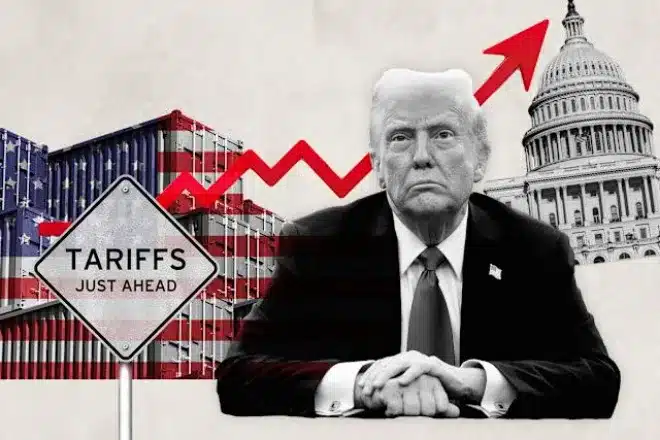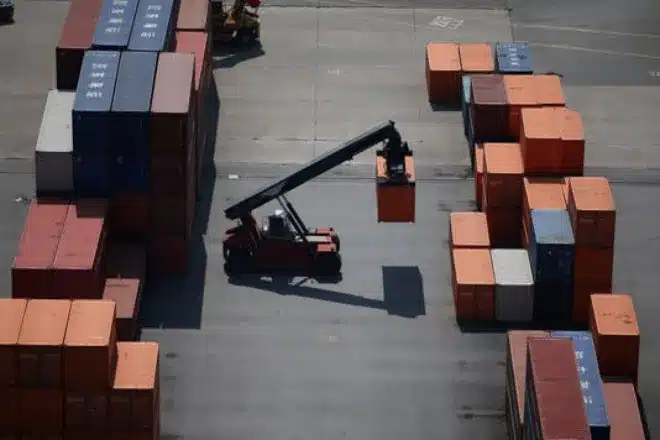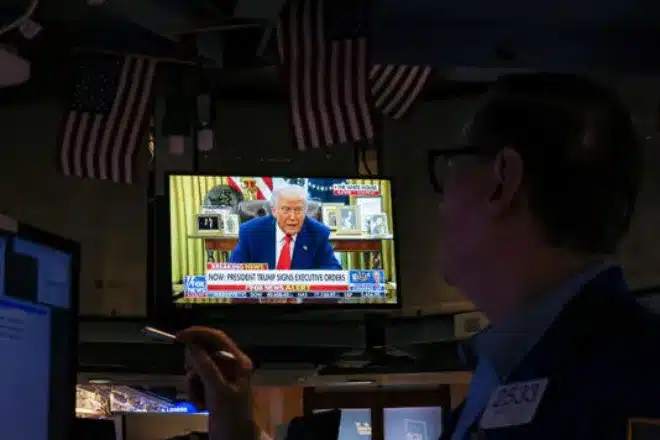The specter of a global economic recession looms larger than ever as economists worldwide sound alarms over the far-reaching consequences of sweeping US tariff policies. Recent surveys show a dramatic shift in the economic outlook, with a majority of experts now predicting a significant decline in global growth by 2025.
Contents
Trump’s Tariffs Impact the Risk of a Global Economic Recession
President Donald Trump’s aggressive trade policies have sent ripples through international markets, fundamentally reshaping the global economic landscape. The implementation of a 10% blanket duty on all US imports has created unprecedented uncertainty for businesses worldwide, while the targeted 145% tariff on Chinese goods has severely strained relations with America’s largest trading partner.
“It’s hard enough for firms to think about July right now, where they don’t know what the reciprocal tariffs are. Try and plan another year down the road. I mean, who knows what it looks like, let alone five years down the road,” explains James Rossiter, head of global macro strategy at TD Securities.

This trade-policy upheaval has erased trillions of dollars in stock market value and shaken investor confidence in traditionally stable US assets, including the dollar. The impact on business sentiment has been overwhelmingly negative, with 92% of economists surveyed reporting adverse effects on corporate outlook and strategic planning.
Many global corporations have either withdrawn from markets or significantly cut revenue forecasts in response to heightened uncertainties and historically high duties on goods. The combination of trade tensions and policy unpredictability has created what many analysts describe as a perfect storm for triggering a global economic recession.
Forecasts of a Global Economic Recession Based on the Global Economic Survey
A Reuters survey of more than 300 economists in nearly 50 countries shows a sharp reversal from the optimistic forecasts just three months ago. As many as 75% of experts have downgraded their forecasts for global growth in 2025, with the median falling from 3.0% to 2.7%.
Among individual economies surveyed:
- 28 of 48 economies saw downward revisions to growth forecasts.
- Mexico and Canada experienced the largest downward adjustments, with projections falling to 0.2% and 1.2% respectively.
- China and Russia were forecast to grow at 4.5% and 1.7%, outperforming the United States.
- Only 10 economies, including Argentina and Spain, received slightly upgraded forecasts, primarily due to domestic factors.
When specifically asked about the likelihood of a global economic recession this year, a concerning 60% of economists (101 of 167) rated the risk as high or very high. The remaining 40% considered the risk low, with just four economists characterizing it as very low.

The pessimistic outlook extends beyond 2025, with similar projections for 2026, suggesting that the economic downturn triggered by tariff policies may prove deep-rooted and difficult to reverse.
Leaders’ and Experts’ Reactions to the Risk of a Global Economic Recession
Economic experts across the spectrum have expressed grave concerns about the current trajectory of global trade relations and their implications for worldwide economic stability.
“It’s a very difficult environment to be optimistic about growth,” warns Timothy Graf, head of macro strategy for Europe, the Middle East, and Africa at State Street. “We could get rid of tariffs today and it will still have done quite a lot of damage, just strictly from the view of the U.S. as a reliable actor in bilateral and multilateral agreements ranging from trade to common defense.”
The progress central banks have made in taming inflation over the past two years through aggressive interest rate hikes is now threatened by the inflationary pressure of tariffs. More than 65% of major central banks surveyed are not expected to meet their inflation targets this year, with only slight improvement projected for next year.
Graf further cautions: “Cutting off your largest trading partner… is going to do all sorts of wild and not so wonderful things to prices, and that’s going to have all sorts of negative impacts on real incomes and ultimately demand. It’s a situation where the possibility that we enter a stagflationary environment has always been quite low, but I think is now higher.”
The specter of stagflation — characterized by slow growth, high inflation, and rising unemployment — is further complicating an already precarious global economic situation.

As international trade tensions continue to escalate and economic forecasts worsen, policymakers and business leaders are facing increasing pressure to navigate a global economic recession that could be the most severe in recent history.
This article explores the increasing risk of a global economic recession amid US tariff policies, featuring insights from leading economists and forecasts from comprehensive global surveys.
About H2T Finance
H2T Finance delivers real-time financial news, keeping you up to date with market movements, policies, and global economic events. As part of H2T Media Group, we are committed to providing accurate information and in-depth analysis, helping investors make quick, confident decisions in an ever-changing financial landscape.
For inquiries or personalized assistance, feel free to contact us:
📞 Phone: +84933.948.888
📧 Email: [email protected]
📍 Address: 4/567 Tổ 10 Khu Phố Hòa Lân 1, Thuận An, Bình Dương, Vietnam
At H2T Finance, your success is our priority.
